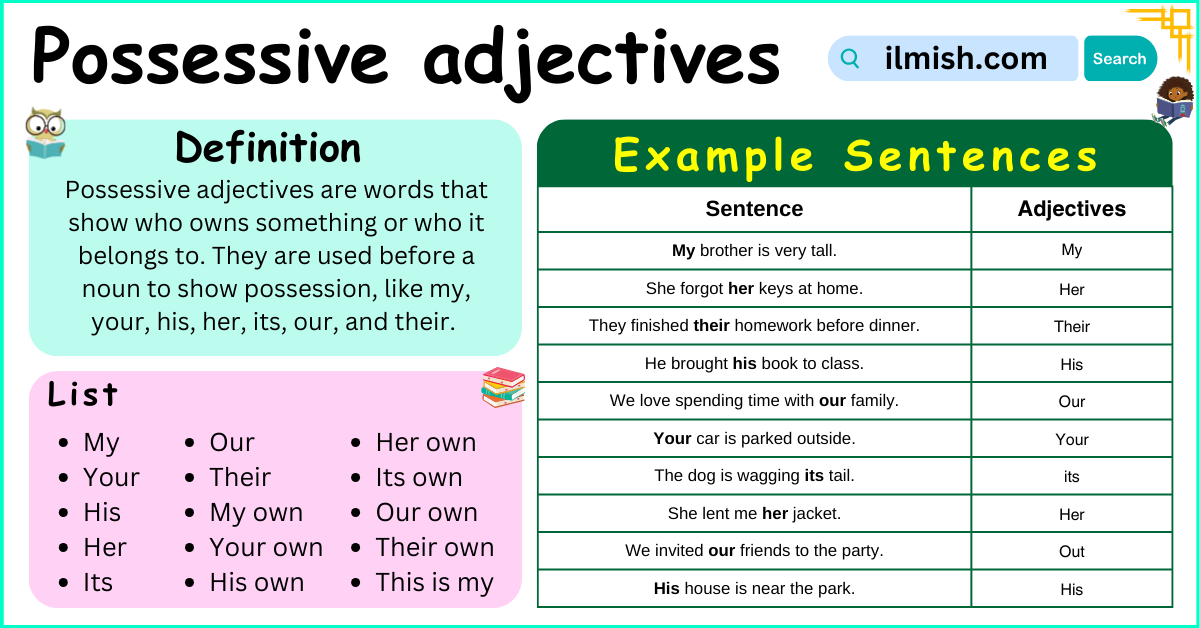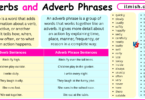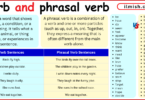What Are Possessive Adjectives?
Possessive adjectives are words used to show who owns or possesses something. They describe to whom a noun belongs and are always used before a noun in a sentence.
For example:
- My book is on the table.
- Their car is parked outside.
List of Possessive Adjectives
| Possessive Adjective | Used For | Example Sentence |
|---|---|---|
| My | First person singular | This is my phone. |
| Your | Second person singular/plural | Is this your bag? |
| His | Third person singular (male) | His jacket is on the chair. |
| Her | Third person singular (female) | Her keys are missing. |
| Its | Third person singular (neutral) | The cat is licking its paw. |
| Our | First person plural | Our team won the game. |
| Their | Third person plural | Their house is very big. |
How to Use Possessive Adjectives in Sentences
Possessive adjectives are used to describe ownership or relationships. They must always come before a noun and match the subject of the sentence in terms of number (singular/plural) and gender (male/female/neuter).
Examples of Possessive Adjectives in Sentences:
- My dog is very friendly.
- Your pen is on the desk.
- She lost her wallet yesterday.
- He is proud of his achievements.
- The company released its latest product.
- Our family is going on vacation.
- Their kids are playing in the garden.
Possessive Adjectives vs. Possessive Pronouns
It is important to differentiate possessive adjectives from possessive pronouns. Possessive adjectives are used before a noun, while possessive pronouns are used without a noun to show ownership.
Examples:
| Possessive Adjective | Possessive Pronoun |
|---|---|
| This is my book. | This book is mine. |
| Is that your car? | Is that car yours? |
Using Possessive Adjectives with Family Members
Possessive adjectives are often used to talk about family members, as they help show relationships between people. Here are some examples:
- My brother is a doctor.
- Her mother is visiting us today.
- Our grandparents live in the countryside.
Common Mistakes with Possessive Adjectives
While possessive adjectives are straightforward, ESL learners can sometimes confuse them with possessive pronouns or omit them altogether. Here are some common mistakes and how to avoid them:
1st Mistake: Using a Possessive Pronoun Instead of a Possessive Adjective
- Incorrect: This is mine book.
- Correct: This is my book.
2nd Mistake: Omitting the Possessive Adjective
- Incorrect: This is phone.
- Correct: This is my phone.
3rd Mistake: Confusing “Its” with “It’s”
- Incorrect: The dog wagged it’s tail.
- Correct: The dog wagged its tail.
Advanced Use of Possessive Adjectives
In more advanced English, possessive adjectives can be used to describe ownership in abstract terms or with collective nouns. They can also be paired with compound nouns or used to show possession of intangible objects.
Examples:
- His honesty earned him respect. (abstract noun)
- Their teamwork made the project successful. (collective noun)
- Our company’s growth has been steady. (compound noun)
Possessive Adjectives with Gerunds
In English, possessive adjectives are often used before gerunds (verbs ending in -ing used as nouns) to indicate who is performing the action.
Examples:
- I appreciate your coming to the meeting.
- His singing was beautiful.
- We were surprised by their leaving early.
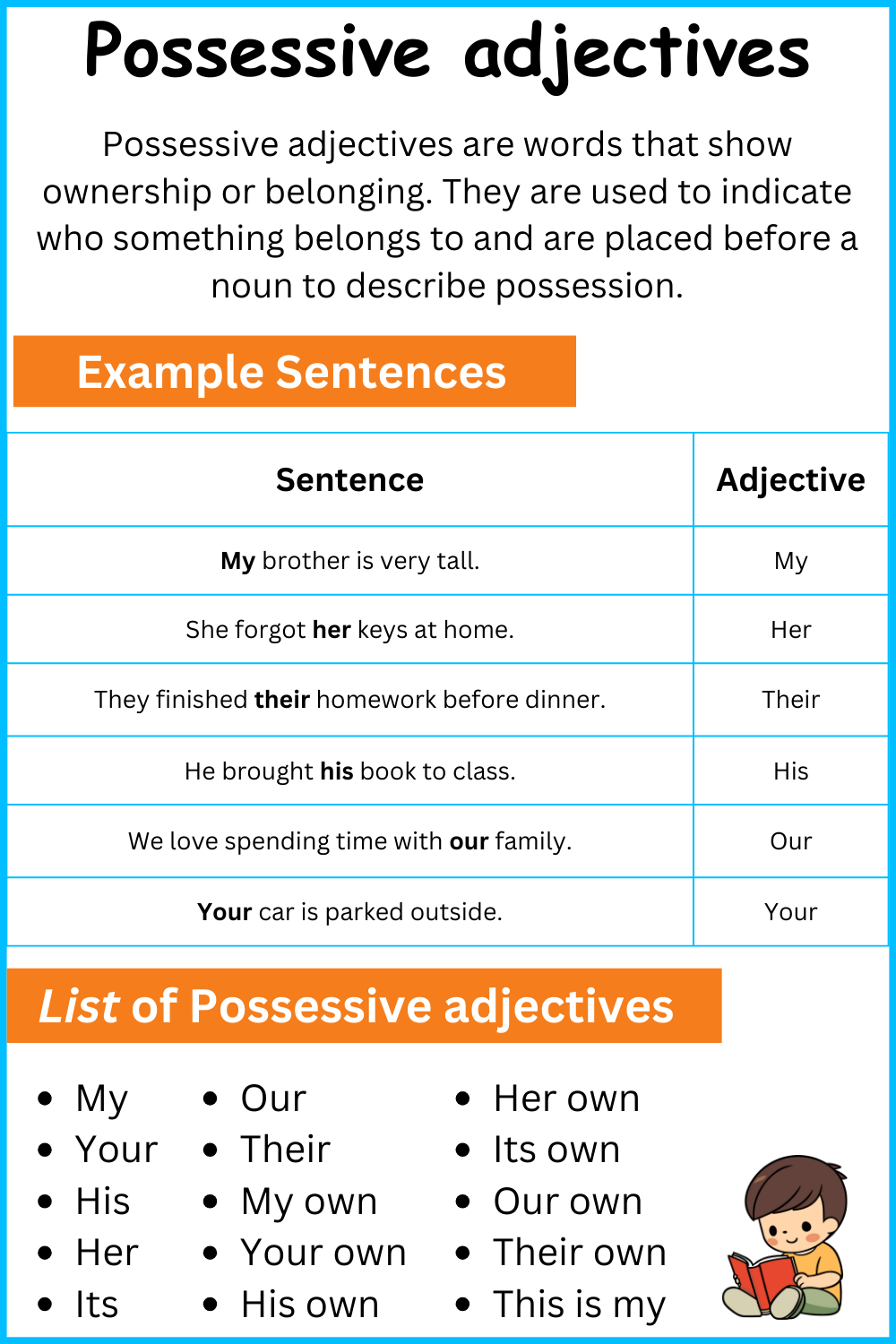
Possessive adjectives definition and Example Sentences
| Sentence | Possessive Adjective |
|---|---|
| My brother is very tall. | My |
| She forgot her keys at home. | Her |
| They finished their homework before dinner. | Their |
| He brought his book to class. | His |
| We love spending time with our family. | Our |
| Your car is parked outside. | Your |
| The dog is wagging its tail. | Its |
| She lent me her jacket. | Her |
| We invited our friends to the party. | Our |
| His house is near the park. | His |
| Is this your phone? | Your |
| They are proud of their achievements. | Their |
| My favorite color is blue. | My |
| The cat is sleeping in its bed. | Its |
| Her shoes are by the door. | Her |
| He found his wallet in the car. | His |
| We packed our bags for the trip. | Our |
| She showed me her new dress. | Her |
| I can’t find my glasses. | My |
| The children are playing with their toys. | Their |
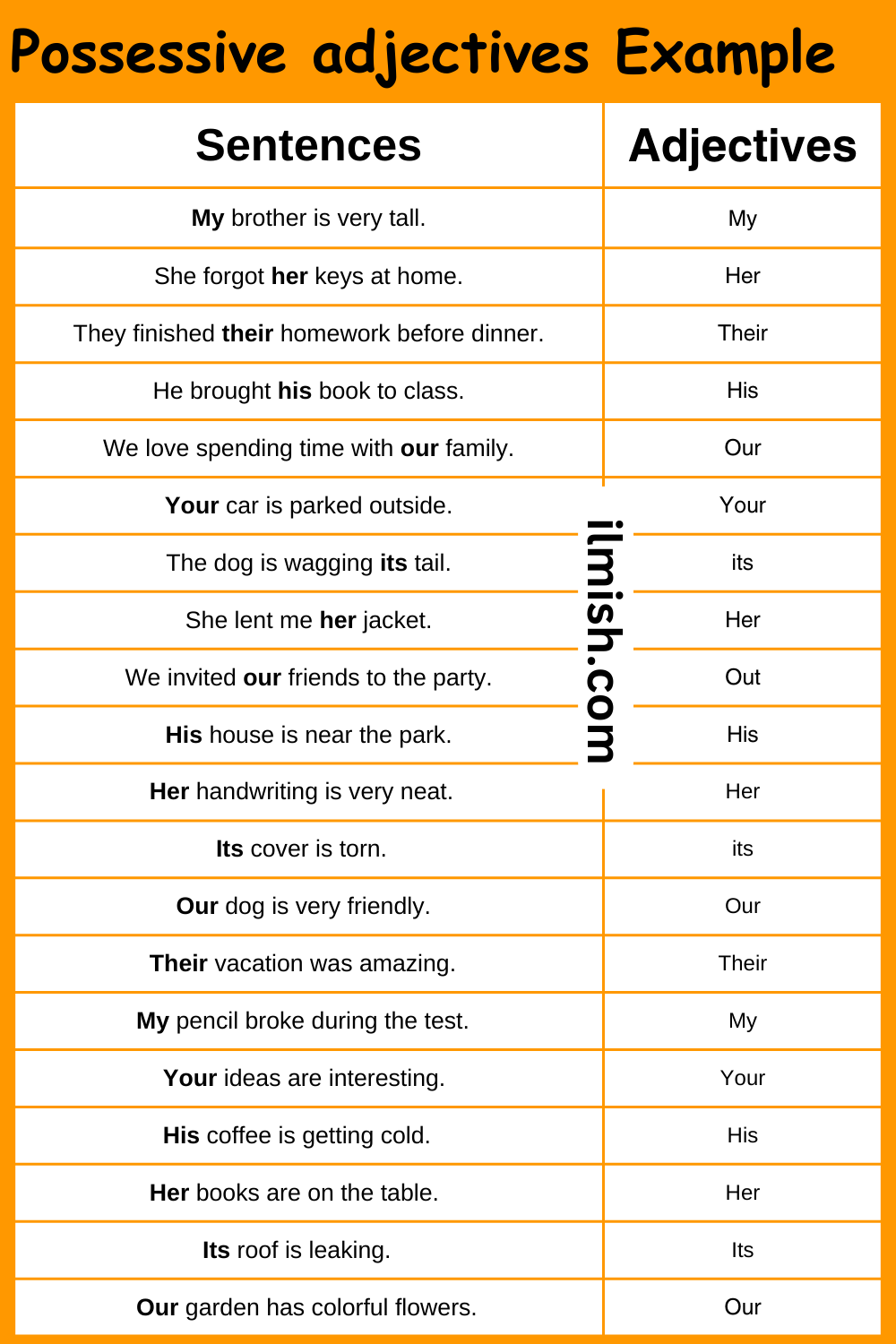
Possessive adjectives Example Sentences
List of Possessive adjectives
- My
- Your
- His
- Her
- Its
- Our
- Their
- My own
- Your own
- His own
- Her own
- Its own
- Our own
- Their own
- This is my
- That is your
- These are our
- Those are their
- My family’s
- Your friend’s
- His brother’s
- Her sister’s
- Our teacher’s
- Their parents’
- My dog’s
- Your cat’s
- His car’s
- Her book’s
- Our house’s

List of Possessive adjectives
Read also

